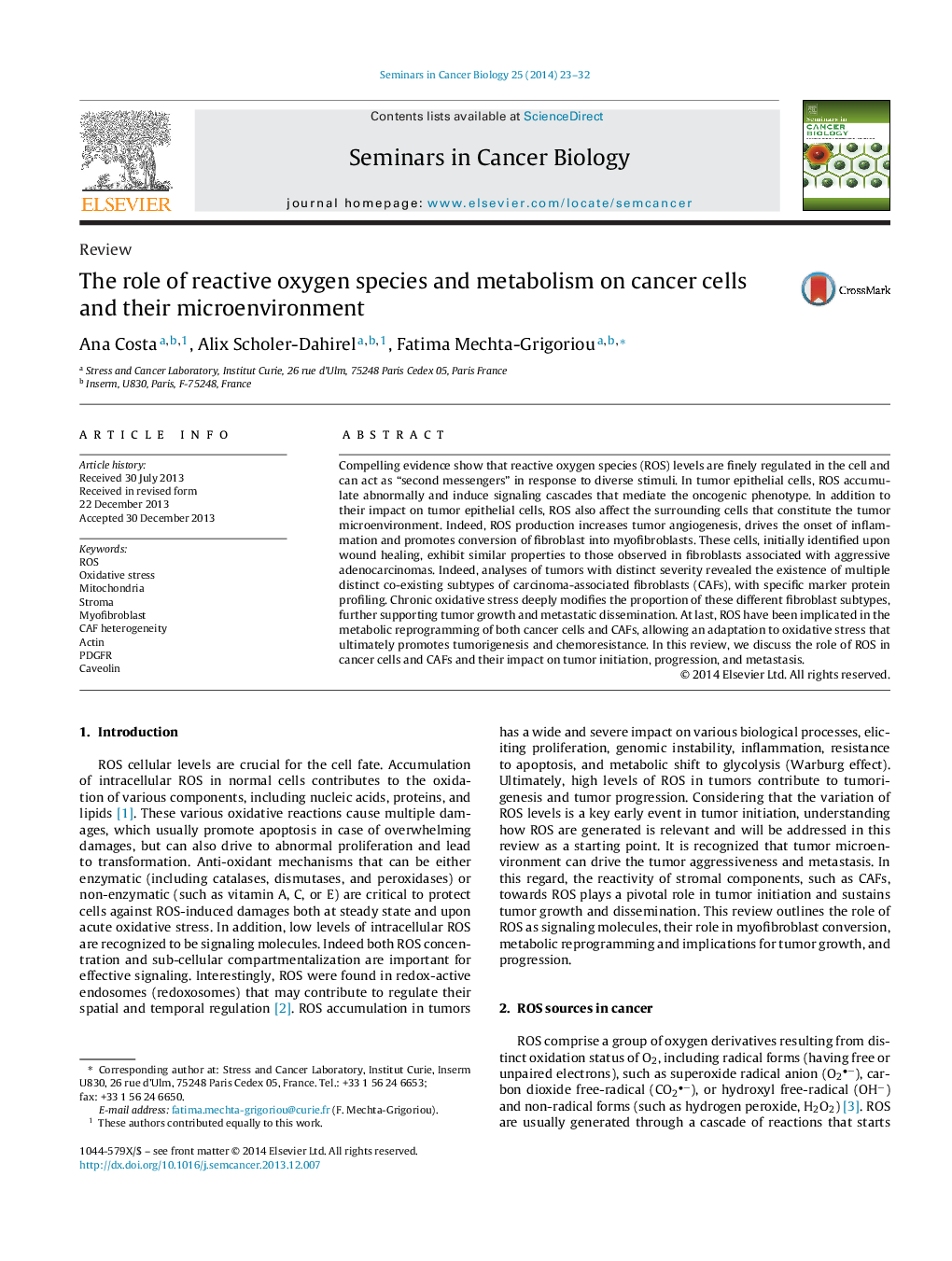| کد مقاله | کد نشریه | سال انتشار | مقاله انگلیسی | نسخه تمام متن |
|---|---|---|---|---|
| 2023652 | 1542542 | 2014 | 10 صفحه PDF | دانلود رایگان |
Compelling evidence show that reactive oxygen species (ROS) levels are finely regulated in the cell and can act as “second messengers” in response to diverse stimuli. In tumor epithelial cells, ROS accumulate abnormally and induce signaling cascades that mediate the oncogenic phenotype. In addition to their impact on tumor epithelial cells, ROS also affect the surrounding cells that constitute the tumor microenvironment. Indeed, ROS production increases tumor angiogenesis, drives the onset of inflammation and promotes conversion of fibroblast into myofibroblasts. These cells, initially identified upon wound healing, exhibit similar properties to those observed in fibroblasts associated with aggressive adenocarcinomas. Indeed, analyses of tumors with distinct severity revealed the existence of multiple distinct co-existing subtypes of carcinoma-associated fibroblasts (CAFs), with specific marker protein profiling. Chronic oxidative stress deeply modifies the proportion of these different fibroblast subtypes, further supporting tumor growth and metastatic dissemination. At last, ROS have been implicated in the metabolic reprogramming of both cancer cells and CAFs, allowing an adaptation to oxidative stress that ultimately promotes tumorigenesis and chemoresistance. In this review, we discuss the role of ROS in cancer cells and CAFs and their impact on tumor initiation, progression, and metastasis.
Journal: Seminars in Cancer Biology - Volume 25, April 2014, Pages 23–32
